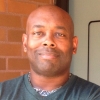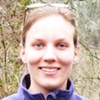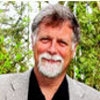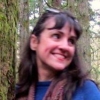Sheriff of Weed Town
Lately, it's hard to get people to hike with me, what with my constant alerts about Garlic mustard and Yellow flag iris. I torture (educate) friends and family on their poor planting choices, and ruin otherwise lovely drives as a "50-mile-an-hour" botanist. You too can become the Sheriff of Weed Town.
The forgotten child in the hood
“Nature-deficit disorder,” as described in Richard Louv's 2005 book Last Child in the Woods, is an issue that has plagued the less fortunate -- and particularly inner-city children of color -- for generations. But how can we reach the Last Child in the Hood?
A quiet revolution under our feet
The communities of the Intertwine are at the forefront of a quiet revolution that just might stem the tide of runaway climate change. Where are we in this campaign -- to bring biocarbon to scale in the Northwest? Well, there’s bad news, good news, and great news.
When worlds collide
We're not the only animals using local greenspaces and yards
The eagle-wrangling, bullet-extracting, wound-stitching staff and volunteers at Audubon's Wildlife Care Center treat 3,000+ wild animals a year. My main takeaway? That coexisting with our urban wildlife takes more than good intentions and gut-level reactions.
Foot trackers
Three new findings show us the way of our trails
Here in The Intertwine, we’re proud of our shared system of trails, parks and natural areas. But who’s actually using our trails? How many of us? And why? For one week each September, Metro mobilizes a small army of Trail Count volunteers to find out.
Don't sign that petition!
Portland's innovative green infrastructure programs clean your water, protect fish and wildlife, save you money, and are publicly accountable. This stands in stark contrast with an ill-conceived initiative backed by some of the city's worst polluters.
Otters one way, lattes another
"Ground truthing" the restoration work nearest your back door
A short distance from my home near Reed Canyon, I can see my newest neighbors, river otters, enjoying a trout dinner. If I walk the opposite direction, I'm at my local coffee shop. Otters one way, human habitat the other. This shared environment is the true value of restoration work.








